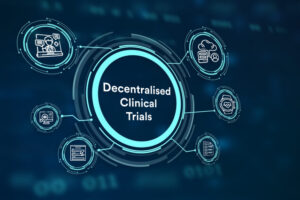Introduction
In the age of digital transformation, data is the new oil—but only when it’s clean, accurate, and governed properly. For businesses relying on customer relationship management (CRM) systems like Microsoft Dynamics 365, the true value of CRM lies not just in its interface or automation capabilities, but in the quality of data it holds. Unfortunately, many organizations face issues such as duplicate records, outdated contact details, incomplete profiles, and inconsistent formatting—all of which compromise strategic decisions and customer engagement.
Enter the Microsoft Dynamics CRM partner—certified experts who specialize in implementing, customizing, and governing CRM systems to ensure the data they house is not only clean but also strategically usable. These partners play a vital role in helping businesses establish data governance frameworks that support accuracy, compliance, and insight-driven actions.
Why CRM Data Quality Matters
Before exploring the role of a Microsoft Dynamics CRM partner, it’s essential to understand why data quality is so critical in CRM systems:
- Customer Experience: Inaccurate data leads to failed communications, irrelevant marketing messages, and poor customer service—all of which erode trust and brand loyalty.
- Sales Efficiency: Sales teams waste time chasing unqualified or outdated leads when CRM data is incomplete or incorrect.
- Marketing ROI: Campaigns based on bad data lead to higher bounce rates, low engagement, and wasted budgets.
- Compliance Risks: With regulations like GDPR and UAE’s data protection laws, poor data governance can lead to fines and legal issues.
- Analytics Integrity: Business intelligence and forecasting models are only as reliable as the data that feeds them.
Maintaining data quality isn’t a one-time task—it’s a continuous discipline. That’s where certified Dynamics CRM partners step in.
The Role of a Microsoft Dynamics CRM Partner in Data Governance
A Microsoft Dynamics CRM partner offers end-to-end support in ensuring CRM data integrity through structured governance, cleansing strategies, and technology enablement. Here’s how they do it:
1. Data Governance Framework Design
Governance starts with strategy. Certified partners help organizations establish a clear CRM data governance framework that defines:
- Data Ownership: Who is responsible for each type of data?
- Data Standards: What are the acceptable formats, naming conventions, and validation rules?
- Access Control: Who can view, edit, delete, or export customer data?
- Change Management: How are data changes logged and approved?
- Auditability: How is data monitored for compliance and integrity?
This framework acts as the blueprint for managing customer data throughout its lifecycle—right from acquisition to archival.
2. Initial Data Audit and Cleansing
Most organizations already have large volumes of customer data stored in multiple systems. A Microsoft Dynamics CRM partner begins with a thorough audit of this data to:
- Identify duplicate records across systems
- Standardize naming conventions and formatting
- Clean up invalid or obsolete records
- Fix inconsistencies in contact information and account hierarchies
- Merge fragmented records related to the same customer
Using a combination of manual reviews and automated cleansing tools, the partner transforms raw, unstructured CRM data into a well-organized, actionable asset.
3. Data Migration and Mapping
If an organization is moving from a legacy system to Microsoft Dynamics 365, data migration becomes a critical phase. Without professional oversight, this process can carry forward errors or even compound them.
Certified partners manage the entire migration lifecycle:
- Map fields from old systems to the new CRM structure
- Validate data during import to prevent duplicates
- Apply transformation rules for formatting consistency
- Remove redundant or archived records
- Establish backup and rollback protocols in case of migration failures
By ensuring a seamless and error-free transition, the partner lays a solid foundation for future data integrity.
4. Real-Time Validation and Automation
Once the system is live, the challenge becomes keeping the data clean. This is where real-time validation comes into play. A Microsoft Dynamics CRM partner configures automated checks and workflows to:
- Prevent duplicate creation at entry level
- Validate phone numbers, emails, and addresses using external APIs
- Enforce required fields and standard values via custom forms
- Apply conditional logic for multi-step data collection
- Notify users or admins about incomplete or suspicious data entries
These mechanisms ensure that only accurate and complete information enters the system.
5. Integration Governance
Modern businesses often integrate CRM systems with ERP platforms, email tools, customer support systems, and marketing automation platforms. Without proper integration governance, these touchpoints can introduce inconsistencies into CRM.
A certified Dynamics CRM partner ensures:
- Seamless integration with external data sources using Microsoft Power Platform, Azure Logic Apps, or third-party connectors
- Synchronization rules to avoid data overwriting or duplication
- Audit trails to track data origin and changes across systems
- Regular reconciliation of records between integrated platforms
This way, the CRM remains the central, trusted source of customer truth.
6. Ongoing Monitoring and Quality Control
Data quality is not a one-time project. Microsoft Dynamics CRM partners implement continuous monitoring tools and dashboards to:
- Track data completeness and accuracy
- Flag anomalies or outliers for review
- Audit user actions that affect data integrity
- Provide regular reports to data stewards and decision-makers
These insights help businesses identify recurring issues and improve internal data handling processes.
7. Training and User Adoption
Even the most advanced CRM systems can suffer from bad data if users are not trained properly. Dynamics CRM partners conduct targeted training programs that:
- Educate staff on the importance of data quality
- Demonstrate correct data entry practices
- Show how to use CRM features like duplicate detection or lookup fields
- Reinforce adherence to governance policies through role-specific workflows
Trained users are less likely to introduce errors, and more likely to treat the CRM as a valuable tool.
8. Compliance and Privacy Management
With increasing scrutiny on data protection and privacy, partners also help organizations remain compliant with local and international laws. In regions like the UAE, data residency and consent management are major concerns.
Microsoft Dynamics CRM partners help implement:
- Role-based access control and data masking
- Consent-tracking fields for marketing communications
- Record expiration and archival automation
- Audit logs for regulatory inspections
- Encryption and secure data sharing mechanisms
These features not only protect the business legally but also build trust with customers.
Real-World Example: B2B Company Achieving Data Excellence
Consider a B2B tech firm in Dubai that partnered with a Microsoft Dynamics CRM partner to clean up and govern its sales data. Before implementation, the firm had over 30% duplicate contacts, disconnected lead records, and no defined ownership of data fields. After a three-month engagement, the partner:
- Removed 12,000 duplicates
- Enforced new formatting and naming conventions
- Integrated CRM with their ERP system for synchronized data
- Deployed a Power BI dashboard to monitor data completeness
The result? Sales conversions improved by 18%, customer support resolution time decreased by 22%, and campaign targeting became significantly more precise.
Conclusion
CRM systems like Microsoft Dynamics 365 are only as effective as the data they manage. Clean, reliable, and well-governed data is the bedrock of successful customer engagement, accurate forecasting, and regulatory compliance. But maintaining this level of data quality is not something businesses should tackle alone.
Engaging a Microsoft Dynamics CRM partner brings both the technical expertise and strategic insight required to implement robust governance frameworks, clean existing data, and ensure long-term quality control. Whether you’re just starting your CRM journey or looking to improve an existing system, working with a certified partner ensures your CRM becomes a true engine of business growth.
In the end, clean data isn’t just a technical goal—it’s a business imperative.



